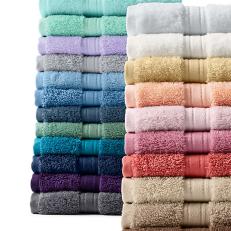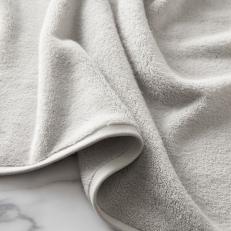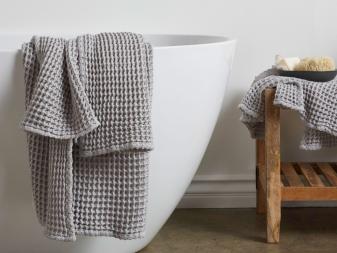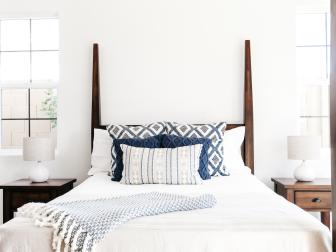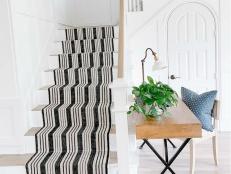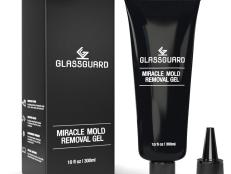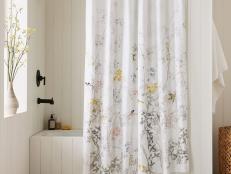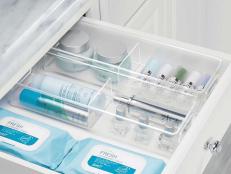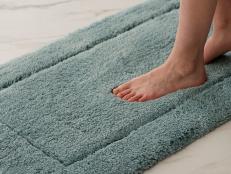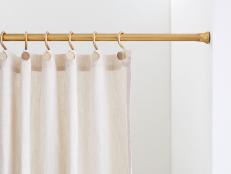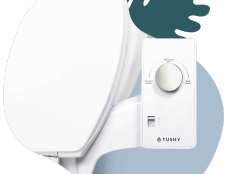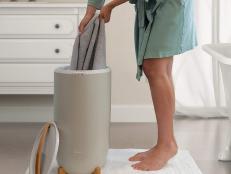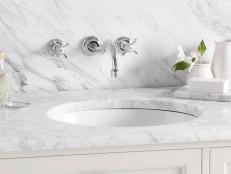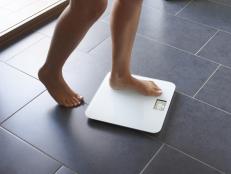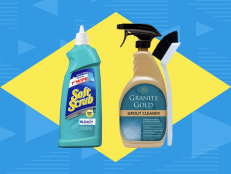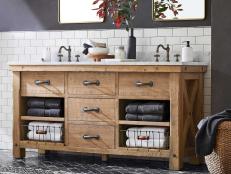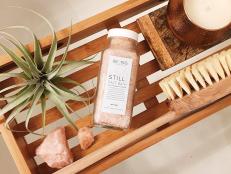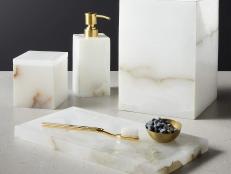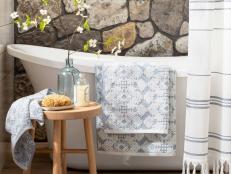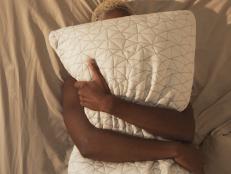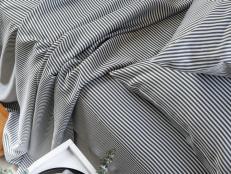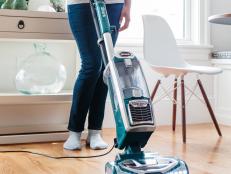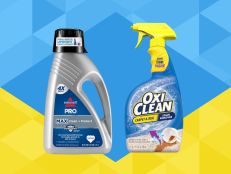Guide to Buying Bath Towels
There are aisles and aisles of towels out there, so picking the right ones can be overwhelming. Here's how to get good towels and care for them so that they actually last.

Bath towels may be the hardest working members of your household. After all, we expect our towels and washcloths to keep us clean, dry us off, add to the look of our bathroom and, occasionally, wipe up after Fluffy tracks mud into the house. However, despite their versatility, towels are often underappreciated, with many people putting little thought into which type of towel they buy and bring home. But with a little knowledge, your towels will look, last and perform better in their many roles.

Jessica Klewicki Glynn
GSM
GSM stands for grams per square meter; it’s a measure of the density of a towel. GSM is to towels what thread count is to sheets. The higher the GSM, the heavier the towel and the softer and more absorbent. And the higher the GSM, the more expensive the towel. GSM ranges from 300 to 900. Here’s what each weight is good for:
300 to 400 GSM
These towels are lightweight. They’re thinner and coarser than higher GSM towels, so not the plush stuff of boutique hotels (or even the middle-grade stuff of chain hotels). They can feel like sandpaper on your skin and aren’t very absorbent, so they’re not good bath towels. But, low-GSM towels dry quickly, which means they’re a great choice for a gym towel or a kitchen towel. Hang them on a rack, and in 15 minutes or so they’re good to go.
400 to 620 GSM
These are medium-weight towels. They’re a good choice for beach towels and bath towels. They’re soft and absorbent but don’t take forever to dry. You can hang them on a rack or over a balcony in the sun, and they’ll dry before you need them again.
620 to 900 GSM
These are heavy, high-priced towels that are a total luxury wallow. These are the sort of towels you dream about, the towels at five-star hotels and spas in Santa Fe, and they feel like a hug when they touch your skin. The downside? These towels take forever to dry. You can use one after your morning shower, hang it on the rack, and it may still be damp when you brush your teeth before bed.
75 Dreamy, Spa-Inspired Bathrooms 65 Photos
Dreaming of a master bath with amenities on par with those at your favorite spa?
FABRIC
Here’s a quick primer on everything from sad polyester to luxury Turkish cotton:
POLYESTER
Leave polyester bath towels to cheap motels. Polyester isn’t absorbent or soft, but it dries fast, so, it’s OK for kitchen, gym or guest bath towels (if you don’t want the company to stay very long).
SUPIMA COTTON
Also called Pima cotton, this material makes a high-quality bath towel. Pima cotton has long fibers that make a soft, durable and absorbent towel.
Shop Supima Cotton Towels
EGYPTIAN OR TURKISH COTTON
This is primo fabric, the stuff of towel fantasies. These materials have long fibers that draw water off your body and make a soft, luxurious towel. They get softer, fluffier and more absorbent with each washing. They’re pricey, though.
Shop Egyptian + Turkish Cotton Towels
BAMBOO
Want to be kind to the Earth and have a good bath towel, too? Go with bamboo. It grows faster and needs fewer pesticides and fertilizers to thrive than cotton. Bamboo fabric is super-absorbent and it dries quickly, so it’s the best of both worlds. Bamboo also resists germs and fungus, so it’s less likely to get nasty. Bamboo's one downside: It’s not thick. If you crave plush, you’ll be disappointed.
Shop Bamboo Towels
MODAL
Less common, though gaining popularity, Modal is made of cellulose from beech trees. It's about 50-percent more absorbent than cotton and won't fade over time, making it an excellent choice for bath towels.
Shop Modal Towels
12 Best Bath Towels for Every Budget and Style
Stock your linen closet with these top-rated bath towels.
CARE
OK, now you know how to buy good towels. Here’s how to care for them:
Skip fabric softeners. They’ll leave a residue on your towels that makes them less absorbent. Your Egyptian cotton towels could end up as crappy as $3 polyester ones.
Wash with vinegar. Put a cupful in the wash with your towels once a month. The vinegar will remove the body oils and soap residue that make towels less absorbent. It also blasts odors.
Say 'no' to towel hooks. Towels hung on hooks dry more slowly than towels hung on bars. Slow-drying towels = mold and bacteria.
Don’t iron them. Yes, some people iron their towels. That’s bad, because ironing crushes the loops in the fabric, making them less absorbent. It’s also bad because ironing towels is a bit much. Really, towel ironers, get a hobby.
Guide to Buying Sheets
How to choose sheets that are soft, comfortable and long-lasting. Plus, comparing microfiber vs. cotton sheets.










